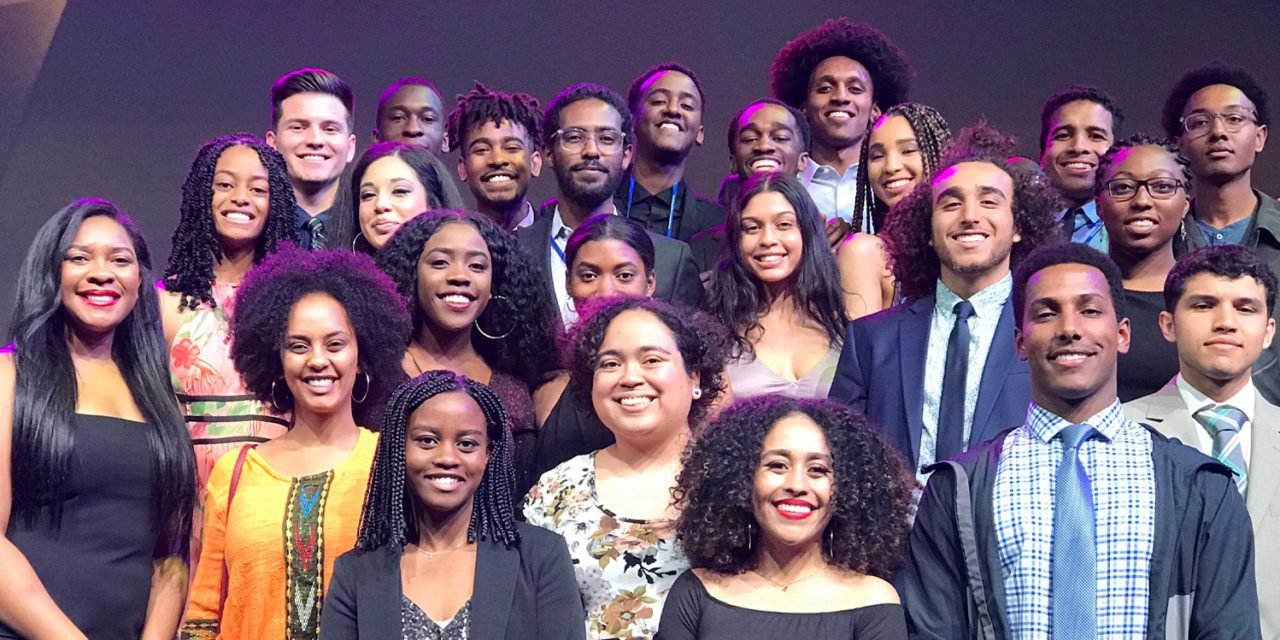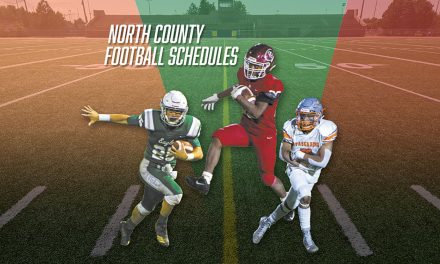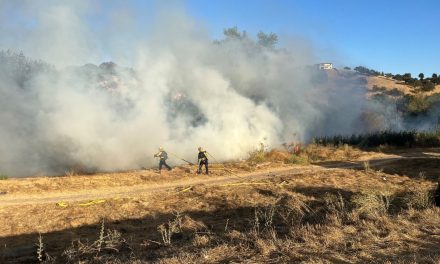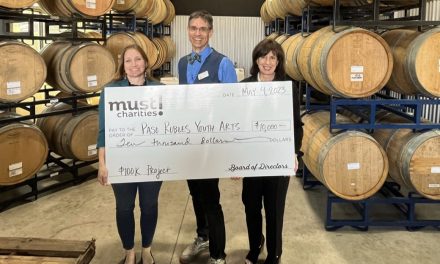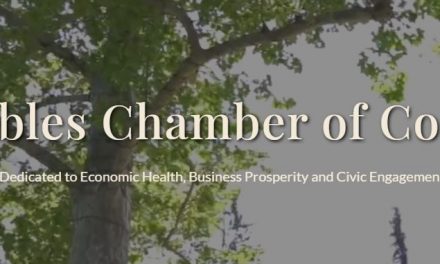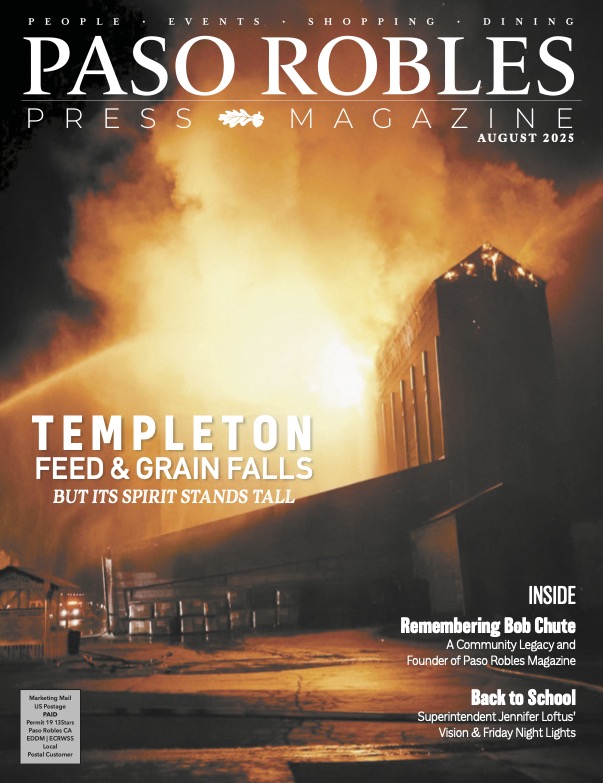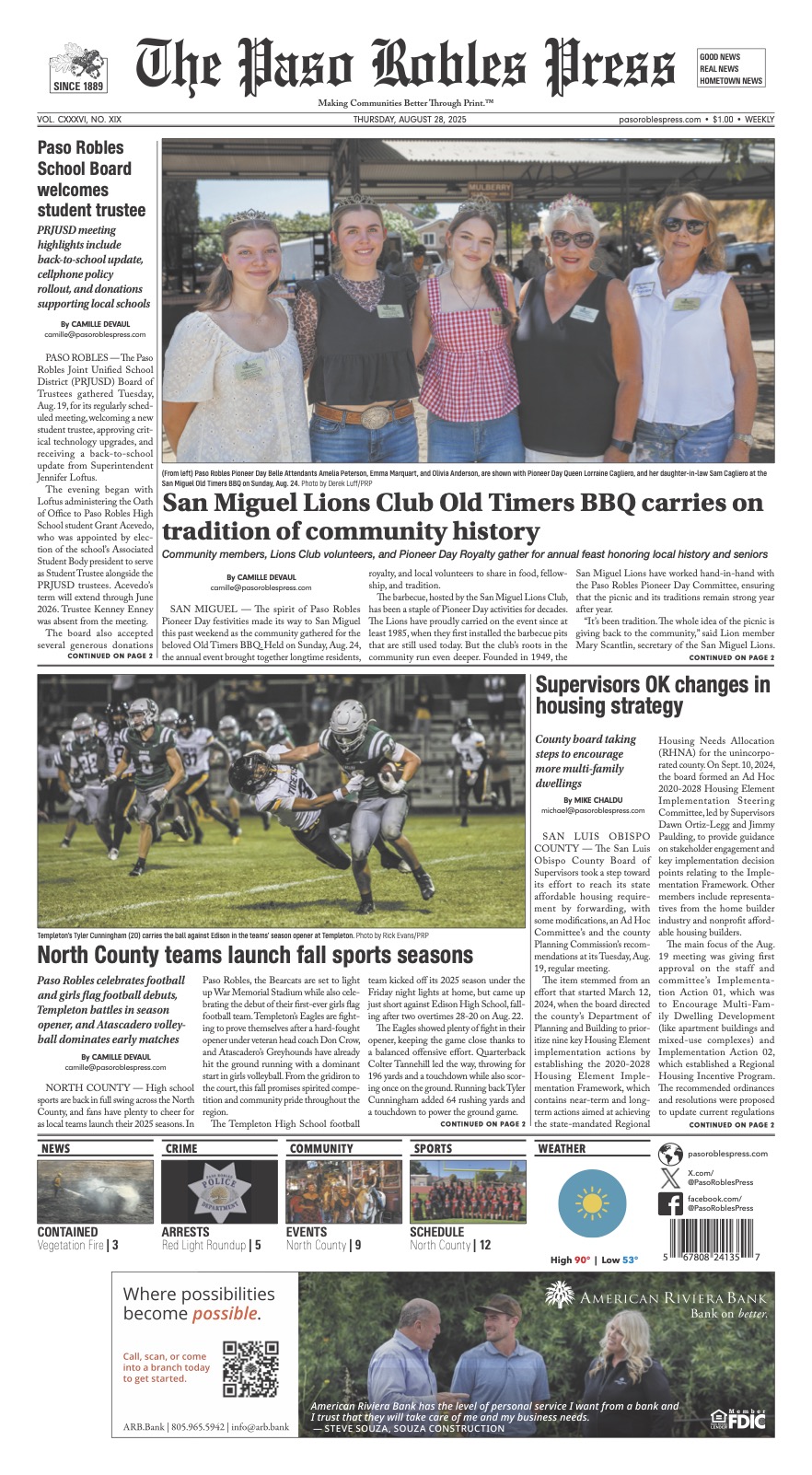SAN LUIS OBISPO — A live Q&A with astronaut Victor Glover in space was one of several highlights that helped Cal Poly’s National Society of Black Engineers (NSBE) earn recognition as Small National Chapter of the Year.
The recognition was relayed by NSBE’s national executive board, which wrote, “This has not been an easy year, but the programming and events held by your chapter demonstrate true resilience in the face of adversity.”
The small chapter award goes to those with 25 or fewer members. Cal Poly’s chapter was also recently recognized as the regional chapter of the year for a third consecutive time.
The Cal Poly chapter was established in 1974 to support minority STEM students, both academically and professionally. The club offers mentorships, career fairs, guest speakers, and social events.
“Cultural clubs like NSBE are important because they reinforce a sense of community for our underrepresented students — which is crucial to academic success,” said Cal Poly President Jeffrey D. Armstrong. “This recognition not only shows the great work current members have done, but it will also encourage future underrepresented students to feel welcome at Cal Poly.”
Nationwide, engineering is a field that historically has been homogenous, said College of Engineering Dean Amy S. Fleischer. But the industry is gradually evolving.
“As engineers, we strive for diversity because the best innovation comes from a range of different perspectives,” she said. “NSBE has done an outstanding job encouraging students from backgrounds that are historically underrepresented in engineering to pursue a field that often has a transformative impact on communities.”
Even as the industry works to encourage diversity and inclusion, there’s still work to be done. Cal Poly NSBE treasurer Kaila Bishop said she’s often the only Black engineering student in class.
“Seeing that makes you feel you’re the only person like that on campus,” said Bishop, a civil engineering senior from Elk Grove, California. “We help each other to battle against that feeling.”
NSBE has been especially important for students who might have otherwise felt isolated during the pandemic and recent racist incidents that have garnered wide publicity, said Storm Randolph, club secretary.
“It gave me a positive space to be in,” said Randolph, a computer engineering student from San Francisco. “My mind wasn’t necessarily on the negative.”
NSBE also provides help with professional development, résumé writing, and establishing useful career connections. Club President Amman Asfaw, an electrical engineering graduate student from Thousand Oaks, California, recently accepted a job offer that came through a Cal Poly NSBE alumnus.
As president, Asfaw has researched the club’s history while working to build the club’s brand so that future students will benefit from it.
“We want to ignite the flame in future culturally responsible engineers,” he said. “Then, once that flame is ignited, we want to make sure they can light other people’s flames and pass on the torch.”
Asfaw thanked advisors Meghan Schuler-Jones, coordinator of the Multicultural Engineering Program, and Michael Whitt, who teaches in the Biomedical Engineering Department.
To receive the national recognition, Tayo Aleru, a senator with the club, compiled a list of NSBE’s activities from the past year, including mentorship meetings, game nights, and guest speakers.
This past year, those guest presentations included: Job Hunting in a Global Pandemic; Going Back to the Motherland (Africa) as a STEM Graduate; and Straight Outta College: My First Five Years as an Engineer, said the aeronautical engineering senior from Fresno, California. Many of the NSBE speakers are past Cal Poly graduates.
“Our alumni like to come back and speak,” Randolph said. “You can always learn a lot from past presidents and past board members, and the more we learn, the more we can improve on what their goals were.”
The most intriguing speaker was Glover (General Engineering, ’99), a former Cal Poly NSBE member and current NASA astronaut, wrapping up a six-month stay at the International Space Station. Glover spoke to the club in January, answering questions while in microgravity. His talk, Succeeding While Black in STEM, included words of encouragement, along with details of his work in space.
“That must be the highlight of our entire chapter’s history up to now,” said Asfaw, one of the event organizers.

